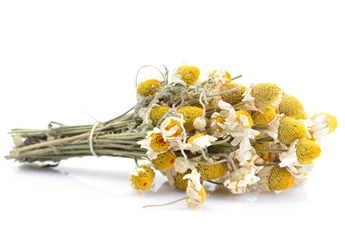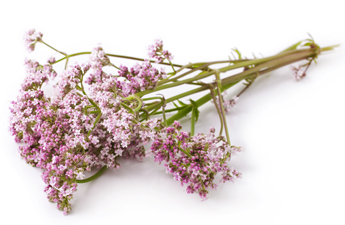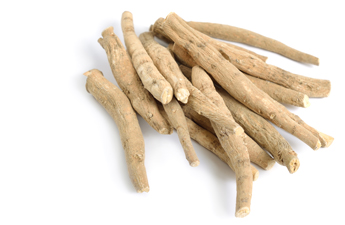BURNOUT: Herbs & Lifestyle Tips to Prevent and Recover From Adrenal Exhaustion
By Stephanie Hazel
A PERSONAL ACCOUNT
Life can be stressful, we all know that. Although a little bit of stress can help us stay focussed and motivated, when stress is both intense and long-term it can really affect our lives and cause something known as “Burnout”. Burnout is becoming ever-more common in our overworked and over-caffeinated culture. If unaddressed, it can cause long-term problems such as Chronic Fatigue Syndrome, thyroid disorders or depression.
Burnout is a subject that is close to my heart – in the early part of 2013 after a highly stressful period here in the Happy Herb Head Office (thanks to dishonest journalists, sensationalist media stations and knee-jerk reactions from politicians giving rise to a whole host of virtually incomprehensible legislation) I lost my voice.
Okay, fine. A bit of silence should do anyone good. But seriously, when I still couldn’t talk nearly 3 months later (and I mean not a peep!) as well as experiencing chronic exhaustion, emotional fragility and generally looking a bit unwell I went to my acupuncturist.
He told me that this was a common sign of kidney yang deficiency (a TCM term that translates roughly as adrenal exhaustion). Not convinced, I went to my GP who told me I was experiencing burnout or adrenal exhaustion and should take a holiday and get a massage.
STILL not convinced (I mean really, not being able to talk for 3 months?!) I went to an ear, nose and throat specialist and had the rather weird experience of getting a camera shoved up my nose, down my sinuses and into my voice box. His diagnosis? Adrenal exhaustion, overwork and stress. AKA: burnout.
This made me take a good look at my life. Not only was I working a lot, I was also studying herbal medicine, volunteering with an NGO, leading a busy social life and generally being an overachiever.
Over a year later, I finally have my strength and juice for life back.
What did it take? Luckily I work in an awesome place, and the Happy Herb crew were fully supportive of me hiring more staff, reducing my weekly hours, and taking 2 months off! I also took a break from studying and had a whole lot of help from my favourite herbal helpers.
RECOGNISING BURNOUT
Signs and Symptoms of Burnout:
- Constant exhaustion (i.e. you wake up feeling tired)
- A feeling of being ‘wired and tired’ (even though you are tired, your brain can’t switch off)
- Decreased immunity (you may get sick more often)
- Strange physical problems that don’t seem to have a medical reason. Examples of this include: repeated loss of voice, digestive problems, back and muscle pains, recurring headaches.
- Insomnia
- Lack of libido
- Cynicism or detachment from life and/or work
- A feeling of overwhelm, and an inability to ‘get everything done’
- Emotional fragility
UNDERSTANDING BURNOUT
Essentially, what is happening when you experience burnout is a combination of emotional exhaustion and adrenal exhaustion. Emotional exhaustion comes from:
- Feeling overwhelmed
- Feeling like we can never get everything done,
- Feeling unappreciated
- Not having time to chill out and tend to our own needs.
When we push beyond our physical and emotional limits by working long hours, dealing with work or personal factors that are stressful and overwhelming, or simply having too many different responsibilities on our plate, there is a price. The price is generally paid by our adrenal glands.
The adrenals produce the hormones adrenaline, noradrenaline, cortisol and many sex hormones. These various hormones affect blood sugar levels, metabolism, blood flow, heart rate, nervous system activity, emotions, immune function and more. As you can imagine, the incorrect balance of these hormones can have disastrous effects on our long-term health. Acute and chronic stress trigger an increase in the release of these hormones, however after sustained stress the adrenals get exhausted and can no longer produce adequate quantities of these hormones.
A major contributing factor to burnout and adrenal exhaustion is caffeine. Although it is accepted workplace practice to have multiple strong coffees every day to get through our busy and hectic workloads, it is actually a damaging practice! When we are too tired to work or think, instead of taking a break we drink a caffeinated beverage (tea, coffee, chocolate, energy drinks, etc.). We stimulate the adrenals to release adrenaline, which increases mental function but actually exhausts all of our organs, causing more profound fatigue later.
If we never actually allow ourselves to rest and recover, but continue to rely on caffeine, sugar and stress to “keep ourselves going,” burnout/adrenal exhaustion is almost inevitable.
PREVENTING BURNOUT
How to prevent burnout:
- Herbs are a great way to manage stress and thereby prevent burnout. Make stress-reducing and adrenal-supporting herbal teas a regular part of your day.
- When you are tired, REST!
- Reduce caffeine intake (up to 1 coffee or 2 teas per day should be the limit!).
- If you find your job stressful, unsatisfying and emotionally draining, change jobs or take a holiday.
- Engage in a morning relaxation ritual – have a long shower, drink a cup of herbal tea while watching the sunrise, go for a walk, meditate, do yoga. The options are endless and you are the only one who will know what works for you, but make this a non-negotiable part of your day.
- Always take lunch breaks, and do your best to limit overtime.
- Eat healthy, nourishing food.
- Make sure you regularly spend time with friends and family, doing the things that make you feel rejuvenated.
Herbal Helpers for preventing or treating burnout:
- Damiana – Seriously our favourite herb, many people find Damiana very useful for stress and a low mood. It is also used in Chinese medicine to support “Kidney Yang” function.
- Passionflower – Traditionally used for stress, anxiety and insomnia, passionflower is a key herb in dealing with overwork.
- Licorice root – The most highly recommended herb for the adrenal cortex (what produces the stress hormone cortisol) by David Hoffman, England’s premier herbalist.
- Siberian Ginseng – An adaptogen that directly supports adrenal function, improves the response to stress and boosts immunity.
- Rhodiola – Another herb with adaptogenic qualities, I find Rhodiola especially helpful when trying to do mentally intensive activities without caffeine!
RECOVERING FROM BURNOUT
There is only one sure way to recover from burnout – rest and do less. Rest is an essential part of human wellbeing and nothing can compensate for it. Along with rest, there are a number of different natural approaches you can take to assist you on the road to recovery:
- If your job is the main cause of your burnout, you must seriously consider finding a new, less stressful job, or taking a proper holiday. If this is not possible, talk to your boss about restructuring your workload or changing to a different department/ role.
- Engage in regular and gentle physical activity to improve immunity and general physiological function, such as walking, swimming or yoga.
- Take a long hard look at your life and reassess your priorities and dreams. Goal setting is a great way to make sure you are on track with accomplishing your dreams, rather than being caught up in the endless rat race. Ray has a great blog about goal setting here (link to goal setting blog).
- Either cut out caffeine and refined sugar entirely or drastically reduce them! They may give you the illusion of having more energy, but overall they take vital energy away from your body and mind.
- Use a natural herbal supplement to gently replenish adrenal function. Ashwagandha, Maca and Licorice are all excellent herbs to support and renew adrenal function.
- Make drinking a stress-relieving herbal cup of tea a part of your daily ritual. Stress-Less Tea is a blend of herbs that are traditionally used to calm, soothe and banish stress from life.
- Just say NO: learn how to let people down to be true to yourself. Recovering from burnout requires peace, quiet and relaxation. Avoid taking on any more responsibility than you absolutely have to; this includes social obligations.
Dealing with burnout, and preventing it in the first place, can be challenging as it is so badly understood. However, it is becoming increasingly common and accepted as a real condition that requires radical changes in our lives.
If you feel you are at risk of suffering burnout or already are – many herbal blessings upon you! May you have the courage to restructure your life in a way that supports good health and a happy heart.
REFERENCES
Hoffman, David. 2003. Medical Herbalism: The science and practice of herbal medicine. Vermont: Healing Arts Press.
Carter, Sherrie Bourg. 2013. High Octane Women: How superachievers can avoid burnout. New York: Promethus Books.
Australasian College of Natural Therapies. 2009 coursework. Advanced Diploma of Herbal Medicine.





 Nextwave
Nextwave

